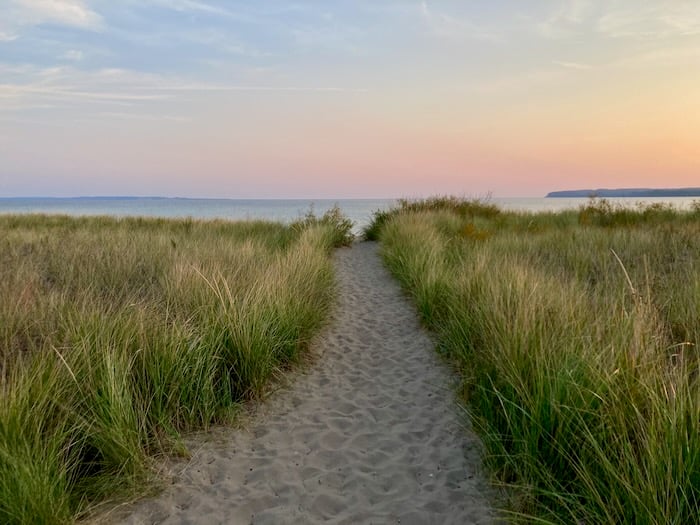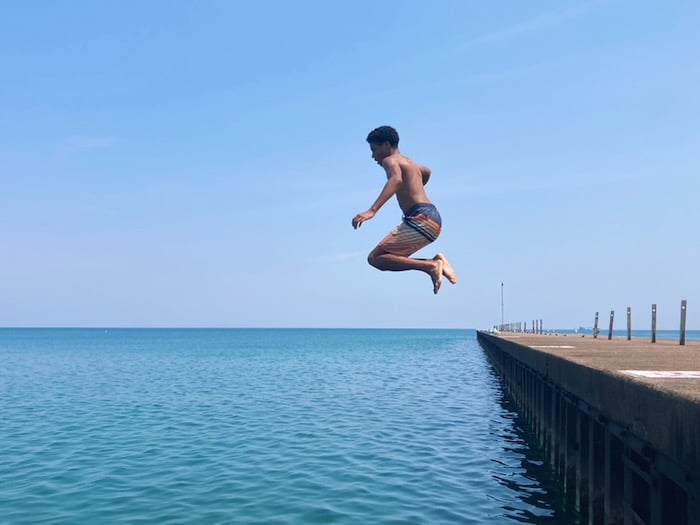My Year With Books (and Burnout)
The books that held me up in 2024
Back in August, a friend gave me a copy of Percival Everett’s recently published novel, James, in which the author retells Adventures of Huckleberry Finn from the vantage point of the enslaved Jim. Early in the book, as James is beginning his unlikely attempt to reunite his family, he and Huck stumble onto a robbers’ trove which includes, to the James’ great delight, a small stack of books. Huck doesn’t suspect his companion’s literacy, so James has to be discreet about why he wants to bring the books along. Later, as Huck sleeps, James considers his treasure.
I pulled my sack of books closer, reached in and touched one. I let my hand linger there, a flirtation of sorts. The small thick book I’d wrapped my fingers around was the novel. I had never read a novel, though I understood the concept of fiction. It wasn’t so unlike religion, or history, for that matter. I pulled the book from the sack. I checked to see if Huck was still sleeping soundly and then I opened it. The smell of the pages was glorious.
I read most of James while perched on a limestone breakwater overlooking Lake Michigan, a short bike ride from our apartment. I must have dipped my nose into it’s pages at this point, searching for a whiff of that comforting smell. The friend who gave me the book knew, even if I didn’t, that I needed this book. More than that, I needed a friend who knew I needed the book.
I read a lot this summer, most of it outdoors. For sheer amount of reading hours, our back porch, newly equipped with a solid Amish-made rocking chair, retains its perennial pride of place. Surrounded by hanging flower baskets, hummingbird feeders, and neighbors coming and going from the apartment building next door, there’s hardly a better place to spend a quiet morning or, illuminated by strings of lights draped from the porch rafters, a muggy Midwest evening.
Everett’s genius isn’t limited to his unexpected retelling of Mark Twain’s well-known novel, though that alone might motivate you to pick up the book. The way he ushers the reader into James’ interior life – filled as it is with sarcasm, anxiety, and resolve; in other words, with humanity – is what had me quickly flipping the three-hundred pages. Traveling with a Black companion who can pass as white, James reflects, “Without someone white to claim me as property, there was no justification for my presence, perhaps for my existence.”

The same sort of creative genius is displayed by Tiya Miles in Night Flyer: Harriet Tubman and the Faith Dreams of a Free People, my favorite book of the year. I also read this one from my quiet lakeside outpost, though in this case the reading was interspersed with unfocused gazing at the horizon while considering one of Miles’ many insights.
If James displays a novelist adept at history, Night Flyer reveals an historian whose prose reads like well-crafted fiction. “Despite the toil she did there,” writes Miles about Tubman’s affinity with the natural world, “she felt an emotional affinity with natural things and may have experienced outdoor time as a balm with healing qualities.”
The work in nature may have eased the toll of Aramita’s [Tubman’s given name] disability, too. She was a sensitive person, attuned to her surroundings and appreciative of nature’s flourishes. The greenish-brown tint to the waterlogged land may have calmed her; the rustling sounds of the living forest may have soothed her; the pinesap-sharp scent in the air may have energized her; the fastidious habits of busy birds may have charmed her.
It’s a revisionist history that is pursued in this exploration of Tubman, a woman whose mythology has often obscured her personhood. Long understood as a solitary and heroic figure, Miles wants us to imagine the most famous of all the conductors of the Underground Rail among her like-hearted contemporaries. Aramita, claims the author, “acted out of a logic that made sense to her and would have made sense to other members of her Black female faith culture.” Miles effectively situates Tubman within this Black faith-rooted, freedom-seeking community by drawing from narratives written by her contemporaries and making impressive use of Womanist theologians and scholars.
By the time I was reading Night Flyer, my own book was just a couple of months away from publication. Given the ways I probe the intersection of race and the environment in Plundered, I was especially interested in how Miles explores two of the themes central to Tubman’s worldview, “spirituality (her belief in God, heaven, and unseen powers) and ecology (her belief in the integrity and import of relationships among all natural beings).” Luminous pragmatism is the evocative term Miles coins to describe this convergence.
Night Flyer is an objectively excellent book, though it struck two personally important notes for me. Before the Chicago weather warmed up enough for my extended streaks of outdoor reading, I’d slowly become aware of a deep fatigue. Try as I might, I couldn’t shake a pervasive sense of emotional depletion. While initially resisting the language of burnout, eventually I had to admit that this was precisely what I was experiencing. That phrase, luminous pragmatism, became one of the few handholds I could imagine in that depleted state and, with so much else being unclear, I knew that I needed to spend as much time outdoors as possible in the weeks to come.
The other thing Mile’s retold history did for me was to point out the absurdity of heroic isolation. Reading about Tubman’s sustaining relationships began rekindling my imagination for a vocation that is purposefully interdependent with others. Despite the countless obvious differences between my own privileged location and the fraught circumstances that Tubman constantly traversed, her nurture of community spoke to the tender places of my exhaustion. Toward the end of her life, writes Miles, Aramita “invested in an aboveground social network rooted in Black-owned land that function as communal space. Other holy women like her had thrived in community once their travels slowed, establishing informal circles of support and formal institutions while feeling that they did the Lord’s work.” Yes and amen.

Poet Christian Wiman’s must recent collection of essays, poems, and criticism, Zero at the Bone: Fifty Entries Against Despair, was another of my outdoor companions this summer. “It requires no great prophetic power,” he observes, “to recognize that we as a species, as a communal soul, have withered, and that as a direct consequence the world around us is dying. The despair is too much to turn one’s attention to, so most of us turn away.” Our church, having recognized my burnout, graciously insisted that I take extra time off in August and September. The thing about unplanned time off is that it’s really hard to turn away from the withered places, whether they be the large-scale stuff Wiman imagines in this essay or the closer, more intimate landscapes of grief. Much of those couple of months was spent simply acknowledging – again and again and again – the depletion I’d been too busy to notice.
Despite its subtitle, Zero isn’t a despairing book. It’s almost as if Wiman, whose rare cancer diagnosis and subsequent excruciating treatments have acquainted him with despair, can’t help but veer into wonder and grace, as in the final sentence of entry twenty-one, “The earth is beautiful beyond all change.”
On many muggy August afternoons I’d strap a folding chair to my bike and slowly ride out to the lake. Tucked between two busy beaches, I found a hidden and quiet limestone perch shaded by a thin line of trees from which I could let my eyes wander over the blue horizon. On most days I’d jump into the water once or twice, trying not to splash too noticeably so as to avoid one of the teenage lifeguards having to walk over with their sheepish reprimand. I’d float and paddle, ducking my head under the water to hear the quiet, before clambering awkwardly up the rocks to my chair, towel, and backpack full of books. And yeah, the earth is beautiful beyond all change, even from a perspective withered by emotional fatigue.
Some days, Wiman testifies, “although we cannot pray – because we are too busy, or because we are in too much pain, or simply because the words will not come – a prayer utters itself.” I didn’t much try to pray this summer but, provoked by slow walks through Jackson Park or long rests alongside the lake, prayers were uttered. Having spent a wonderful few days with my family at the Sleeping Bear Dunes National Lakeshore in Michigan earlier in the summer, I returned to camp by myself in September. Each evening I carried that same folding chair out to the mostly deserted beach and watched the dimming sky slowly light up with constellations, planets, and the occasional meteor or satellite. Frankly, I’m not sure how a person couldn’t pray under such circumstances.
Should you ever find yourself burned out, I recommend expanses of stars and great big vistas. Mine was the lake, though I imagine mountains or plains, forests or fields would do just as well. Also, the Psalms. About praying the Psalms, Kathleen Norris notices how they “defeat our tendency to try to be holy without being human first.” The Cloister Walk came with me to Michigan as did Eugene Peterson’s Answering God, a book about praying the Psalms to which I’ve returned regularly. Agreeing with Norris, Peterson insists that prayer as modeled by the Psalms is a deeply human endeavor, which is to say that it accounts for our persistent need of salvation. “Human beings are in trouble most of the time… Prayer is the language of the people who are in trouble and know it.” I knew it and it was and though 2025 will be full of its own trouble, I’m glad to step into it with a heart that is being revived.
+++
I read a few other books this year, a handful which were gifts from friends who’d heard about my burnout. I’m generally wary of receiving books as gifts as there are only so many reading minutes available each day and my to-read stack already defies those limits. But, maybe because these generous book-givers knew better than I what I needed, these books became steadying companions, small codices of grace.